April 14, 2025 | 02:19 GMT +7
April 14, 2025 | 02:19 GMT +7
Hotline: 0913.378.918
April 14, 2025 | 02:19 GMT +7
Hotline: 0913.378.918
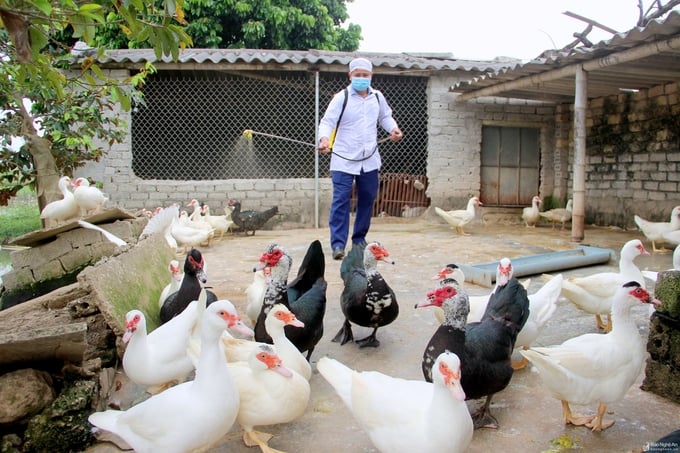
The veterinary system at all levels, especially district and commune levels, has recently undergone many changes, having veterinary stations merged with other units. As a result, disease disease monitoring, detection, and reporting experience delays. Many places even neglect the work. Photo: Bao Thang.
At a consultation conference recently held to support the implementation of the Scheme “Strengthening the capacity of the system of specialized veterinary management agencies at all levels in the period 2021 - 2030”, the Department of Animal Health (Ministry of Agriculture and Rural Development) mentioned the hardship this sector had to go through in recent times.
Vietnam shares a very long border with other countries, many of which have difficult-to-control terrain. At the same time, the daily activities of border residents are vibrant, with large numbers of vehicles going back and forth for commercial or tourist purposes. When it comes to veterinary management, these characteristics of the borderland increase the risk of dangerous diseases infiltrating the country.
Another thing to add is that the entire veterinary system, particularly the district and commune levels, has undergone many changes. Veterinary stations merge with other units, and there seems to be a lack of available veterinary staff to advise and organize disease prevention and control, leading to delays in disease monitoring, detection, and reporting.
Many localities no longer have a veterinary force at the grassroots or commune levels to perform the job. On the other hand, the local veterinary agency cannot fully grasp the situation of animal disease occurring in the area, so the implementation of disease prevention and control measures is inconsistent.
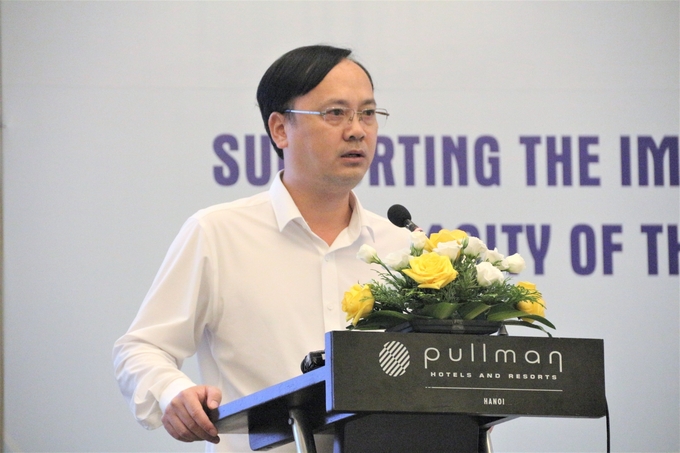
Deputy Director of Department of Animal Health Phan Quang Minh spoke at the consultation conference. Photo: Bao Thang.
Regarding difficulties in the quarantine of animals and animal products, the provincial veterinary management agency usually suffers a shortage of qualified officers to perform quarantine tasks according to the provisions of the Law on Animal Health. This makes controlling the transportation of animals and animal products difficult, causing food insecurity and increasing the risk of disease outbreaks.
Because localities near the border have large areas of land, not to mention many crossroads and shortcuts from one place to another, the control of animal transportation feels even more difficult due to the lack of human resources.
When an epidemic occurs, the provincial People's Committee sets up inter-sectoral quarantine checkpoints to control vehicles going inside and outside the province, and local authorities mobilize veterinary officers at district agricultural service centers. However, the staff at the center cannot handle violations because they are not quarantine officers.
Regarding difficulties in slaughter control and veterinary hygiene inspection, the Department of Animal Health states that the provincial Sub-departments of Livestock Production and Animal Health cannot authorize the implementation of slaughter control in agricultural service centers because they are not under the Department’s direct management.
The majority of provinces and cities in the North do not have enough human resources to carry out slaughter control, only satisfying 30% of the total 27,700 small slaughterhouses. Many localities do not have enough veterinary staff to carry out the control work considering the slaughterhouses have a capacity of over 50 cattle or over 200 poultry per day.
Importing countries now require that Vietnam’s animal products (meat, eggs, milk, honey, seafood, etc.) for export must be monitored along the production chain. Making changes in the veterinary system thus leads to this system not operating in accordance with international regulations, requirements of importing countries, and Vietnam’s law in general (Law on Animal Health, the Law on Animal Husbandry, the Law on Food Safety and documents guiding the implementation of the laws). It is very difficult to organize and implement monitoring of food safety and traceability, leading to many obstacles in exporting livestock products from Vietnam to other countries.
On March 22, 2021, the Prime Minister issued Decision No. 414/QD-TTg on approving the Scheme "Strengthening the capacity of the system of specialized veterinary management agencies at all levels in the period 2021 - 2030". The goal is to consolidate the system of specialized veterinary management agencies at all levels, ensure effective and efficient implementation of veterinary activities and animal disease control while protecting public health and proactively integrating with the international community.
Translated by Samuel Pham
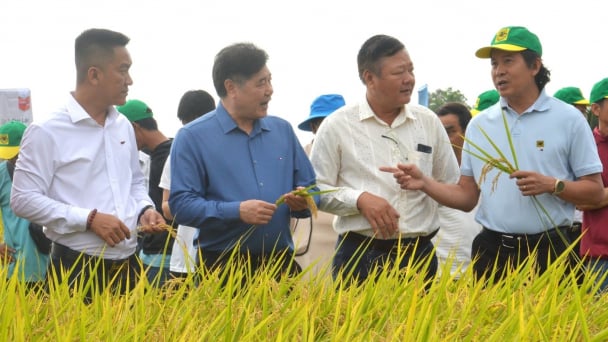
(VAN) The results from pilot fields are catalyzing the expansion of the One million hectares of high-quality, low-emission rice project in Kien Giang.
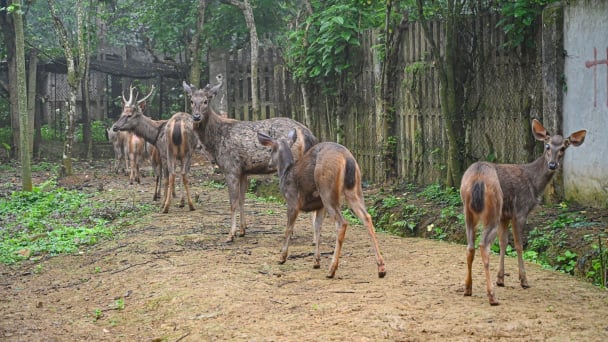
(VAN) On the morning of April 11, Cuc Phuong National Park received 18 individuals of endangered and rare wild animals from Da Nang city.
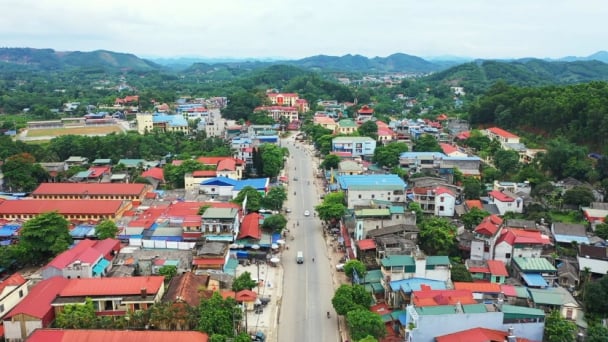
(VAN) FAO supports Vietnam in enhancing survey sampling techniques for the 2025 nationwide agricultural and rural census.

(VAN) By participating in the green transition, manufacturers become an indispensable part of the circular economy, contributing to resource optimization and environmental protection.
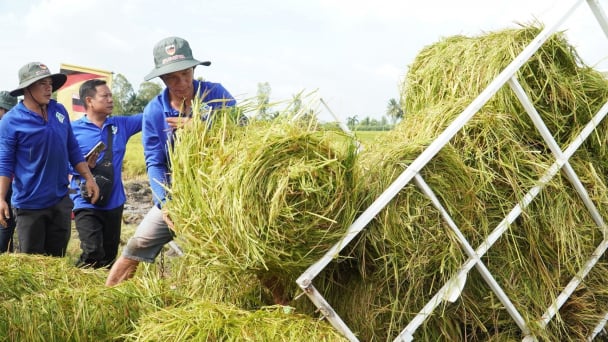
(VAN) The One Million Hectares of High-Quality and Low-Emission Rice Program can generate nearly 14 million tons of straw annually, posing an urgent requirement to diversify straw-based products.
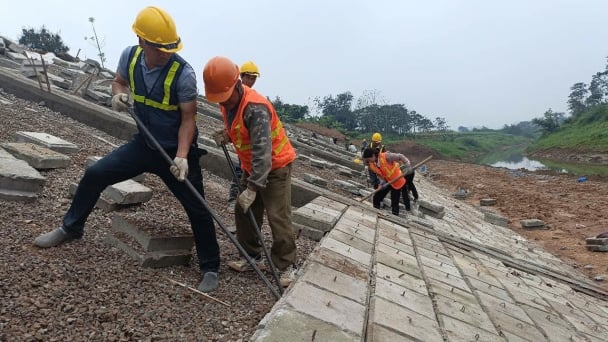
(VAN) This figure was recently announced at a conference held in Yen Bai, focusing on climate-resilient infrastructure development for ethnic minority regions.
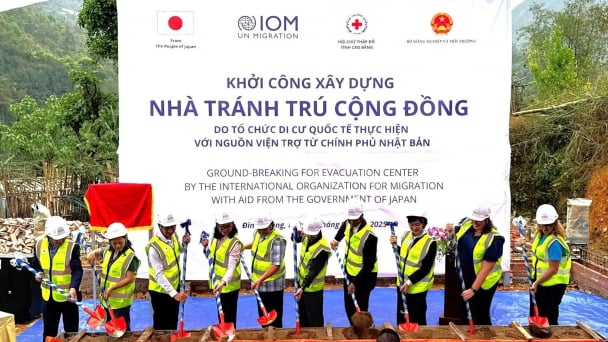
(VAN) The evacuation center is a practical work in efforts to respond to natural disasters and adapt to climate change in vulnerable areas.